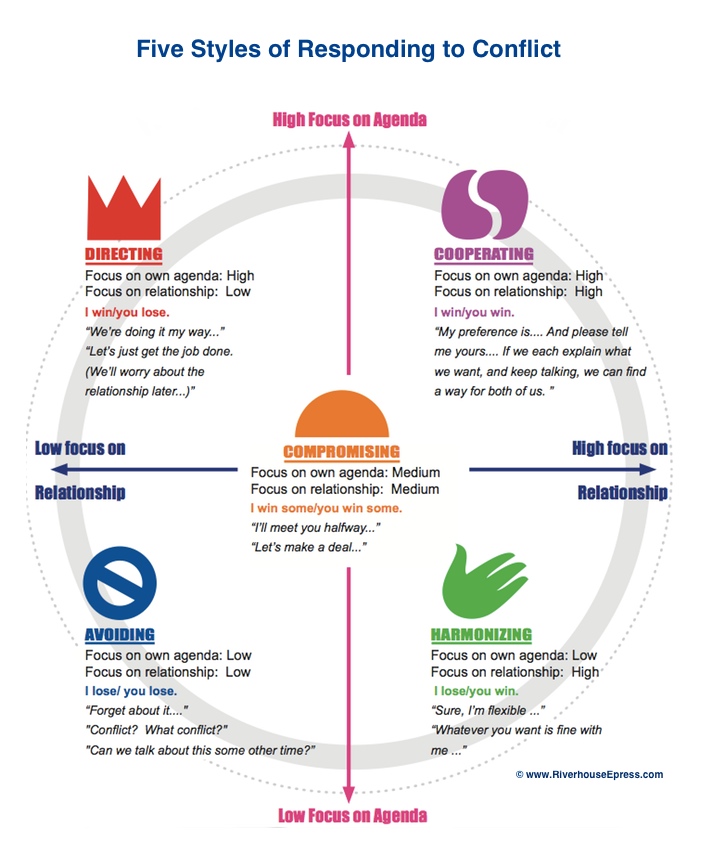
The best way to avoid needing conflict resolution is to avoid conflict in the first place. Learn what works and doesn't work when it comes to interacting with your coworkers. This short video is a great place to get started:
It's important to understand conflict is going to happen in your life -- you have to learn how to deal with it. Conflict isn't always negative, it can be an opportunity for growth. But the first step is to look inward and understand your conflict style or the way you approach conflict.

As a new employee, you really cannot do more than manage your own behavior toward conflict resolution. After all, you can't change what other people will do, but you can control your own behavior.
React Appropriately
Your employer won't tolerate you lashing out, even if you've been provoked or agitated. Keep your emotions in check -- consider the stakes. The customer or co-worker might be screaming at you, but if you scream back, you both will be responsible for escalating the situation. You losing control is lose-lose, not just for the people involved in the conflict directly, but everyone in the office.
Communicate, communicate, communicate
Understand most conflicts arise from a lack of communication, whether it's missing information, a failure to make expectations clear, or so on. Ask questions early about a project you're assigned, and when problems arise, seek help. You can cut off conflict before it starts.
Have some empathy for others
Understand where the other person is coming from. Most people, whether they're co-workers, customers, or bosses, are motivated by their own self-interest -- "What's in it for me?" What is being threatened for this person that is causing the conflict? If you can figure that out, you might be able to resolve the conflict. As Winston Churchill once said, "Courage is also what it takes to sit down and listen."
Judge the importance of the conflict
How important is it to keep this conflict going and for you to come out of it as "right" and the other person as "wrong"? Is it better for the office and yourself if the conflict de-escalates? After all, Maya Angelou reminds us that "People will forget what you said, they will forget what you did, but they will never forget how you made them feel."
This leads us to the last thought...
Treat conflicts as opportunities for self-improvement
As a new employee, many things will be out of your control. Sometimes all you can do is apologize, whether you're right or wrong, and learn from the experience to do better next time. After a conflict de-escalates, whether because it was resolved or because you or the other person exited the situation, take a self-inventory of the situation and ask what could have been done better. Then next time, try to make that happen, especially stressing communication to avoid a conflict from starting in the first place.
For more on dealing with conflict resolution in the workplace, see:
"5 keys of dealing with workplace conflict" by Mike Myatt
"Resolve conflicts in the workplace with these 12 techniques" by Jayna Fey